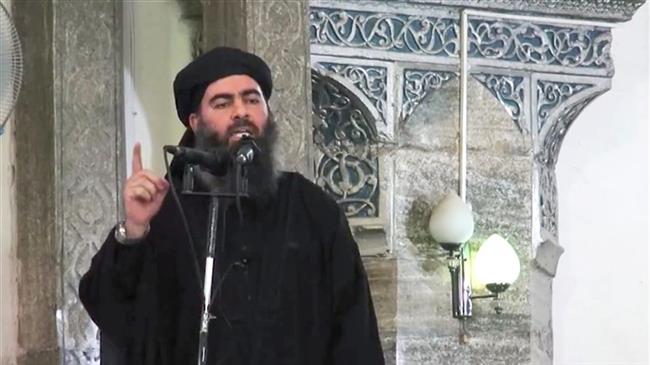Daesh remnants storm house, shoot dead 12 in northern Iraq
At least 12 civilians, all members of the same family, have been killed when the Daesh Takfiri terrorist group stormed a house in Iraq's northern province of Salahuddin.
A security source, speaking on condition of anonymity, told Arabic-language al-Sumaria television network that the militants launched the attack in al-Farhatiah town on Saturday. Several women and children were among the victims.
The source added that the bodies of the deceased civilians had been transferred to the department of forensic medicine to be identified.
An investigation has been launched to determine the circumstances surrounding the incident.
On December 9, 2017, Iraq’s Prime Minister Haider al-Abadi declared the end of military operations against Daesh in the Arab country.
Seven months later, Abadi formally declared victory over Daesh extremists in Mosul, which served as the terrorists’ main urban stronghold in the conflict-ridden Arab country.
In the run-up to Mosul's liberation, Iraqi army soldiers and volunteer Hashd al-Sha’abi fighters had made sweeping gains against Daesh.
The Iraqi forces took control of eastern Mosul in January 2017 after 100 days of fighting, and launched the battle in the west on February 19 last year.
Daesh began a terror campaign in Iraq in 2014, overrunning vast swathes in lightning attacks.
‘Daesh holding Izadi women, children in underground prisons in Syria’
Meanwhile, an Iraqi Izadi activist says Daesh Takfiri terrorists were holding women and children from the religious minority captive at underground prisons in Syria.
Hussein Ali al-Khansouri told Russia’s Sputnik news agency that Daesh was holding at least 2,000 people at its detention centers in Sousa, Hegeen, Shoafa and Baguz regions of Syria’s eastern province of Dayr al-Zawr as well as Dashisha desert region near the border with Iraq.

“Only in Dashisha, there are more than 300 Izadi children and adults, who were kidnapped by Daesh in August 2014. All the mentioned regions are being shelled by the US-led coalition as well as French fighter jets,” Khansouri pointed out.
Back in August 2014, Daesh overran the town of Sinjar, killing, raping, and enslaving large numbers of Izadi Kurds.
The region was recaptured in November 2015, during an operation by Kurdish Peshmerga forces and Izadi fighters.
The Office of Kidnapped Affairs in the northern Iraqi city of Dohuk said last year that around 3,500 Izadi Kurds were still being held captive by Daesh, adding that a large proportion of the abductees were women and children.
The Endowments and Religious Affairs Ministry of the semi-autonomous Kurdistan Regional Government announced last August that Daesh’s genocide of the Izadis had forced nearly 360,000 members of the minority group to flee their hometowns, and that another 90,000 had left Iraq and taken refuge in other countries.
It added that Daesh terrorists had kidnapped 6,417 Izadi Kurds, including 1,102 women and 1,655 children, since 2014.
‘All wars have rules. All of those rules have been broken’ by Israel
VIDEO | Report flags India’s violation of rights of Rohingya detainees
Turkey's foreign minister meets Syria's de facto leader in Damascus
'Next to impossible' to rescue patients from Gaza's Kamal Adwan Hospital: Director
VIDEO | Vietnam current prosperity
Report blames gasoil exports for shortage at Iranian power plants
VIDEO | Hind Rajab Foundation names Israeli war criminals vacationing after Gaza genocide
VIDEO | Australians rally for Gaza ahead of Christmas festivities


















 This makes it easy to access the Press TV website
This makes it easy to access the Press TV website